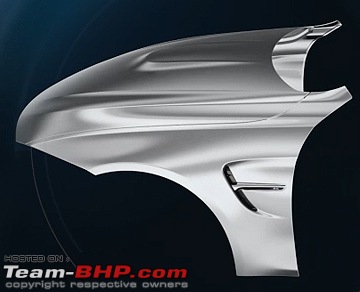| | #121 |
| BHPian Join Date: Oct 2013 Location: bangalore
Posts: 560
Thanked: 664 Times
| |
| |  (4)
Thanks (4)
Thanks
|
| |
| | #122 |
| Distinguished - BHPian Join Date: Apr 2013 Location: Beans Town
Posts: 1,847
Thanked: 8,351 Times
| |
| |  (5)
Thanks (5)
Thanks
|
| | #123 |
| BHPian Join Date: May 2006 Location: mumbai
Posts: 676
Thanked: 899 Times
| |
| |
| | #124 |
| Distinguished - BHPian  | |
| |  (3)
Thanks (3)
Thanks
|
| | #125 |
| BHPian Join Date: Nov 2011 Location: India
Posts: 824
Thanked: 1,565 Times
| |
| |  (2)
Thanks (2)
Thanks
|
| | #126 |
| BANNED Join Date: Nov 2008 Location: New Delhi
Posts: 768
Thanked: 349 Times
| |
| |  (1)
Thanks (1)
Thanks
|
| | #127 |
| Senior - BHPian | |
| |  (2)
Thanks (2)
Thanks
|
| | #128 |
| BHPian Join Date: Sep 2014 Location: Pune
Posts: 133
Thanked: 52 Times
| |
| |
| | #129 |
| BHPian Join Date: Dec 2013 Location: Gandhinagar
Posts: 248
Thanked: 616 Times
| |
| |
| | #130 |
| Senior - BHPian | |
| |
| | #131 |
| Distinguished - BHPian  Join Date: Dec 2012 Location: Ranchi
Posts: 4,377
Thanked: 11,836 Times
| |
| |  (1)
Thanks (1)
Thanks
|
| |
| | #132 |
| Senior - BHPian | |
| |
| | #133 |
| Distinguished - BHPian  Join Date: Dec 2012 Location: Ranchi
Posts: 4,377
Thanked: 11,836 Times
| |
| |
| | #134 |
| BANNED Join Date: Nov 2008 Location: New Delhi
Posts: 768
Thanked: 349 Times
| |
| |
| | #135 |
| BHPian Join Date: Aug 2014 Location: DEL, SFO
Posts: 901
Thanked: 2,838 Times
| |
| |
 |
Most Viewed








